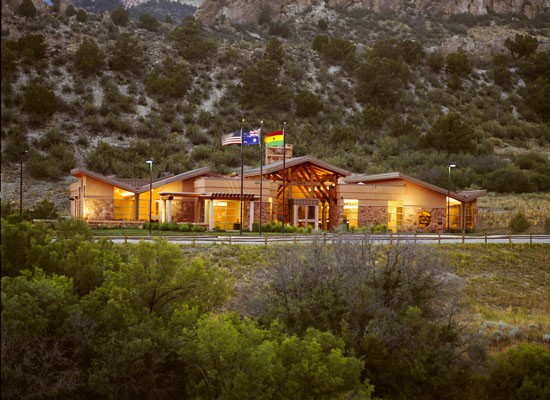Over the years, The Navigators came to be called a Worldwide Partnership. This term is a powerful expression of our approach to international interdependence around a common calling, values, and vision. It is helpful to understand the history behind this idea of a Worldwide Partnership.
Through the 1980s, as the Navigator work spread to more and more nations, our leaders used the phrase “global society” to describe how we were linked together. A society is a community with a special interest or vision. It will rise and fall with the attraction of that vision. Neither structure nor policies nor hierarchy will hold it together. It opens for us the potential of mission out of weakness, the paradox of the Cross. Thus, we are global because the field is the world, yet we are only a society because we do not seek to be dominant or to lord it over one another.
In aspiring to such arrangements, three relatively new ideas surfaced. First, it was said that the Global Society would be an “architecture of relationships.” From a theological perspective, we wanted to function as an interdependent partnership, linked together internationally and belonging to one another.
Secondly, we recognized that our quest to encourage energy and initiatives to flourish in the grassroots, where the lost are engaged, pulled us toward the practice known as “subsidiarity.” Subsidiarity assumes that influence already lies in the grassroots, and it recognizes that our field leaders normally do not have to seek permission to minister in new ways. We developed a commitment to keep decisions as local and as close to the grassroots as would be prudent, thus freeing up initiative and creativity.
Thirdly, we welcomed the new concept of linkage leaders. These would differ from our traditional middle managers. They would connect our countries to the center and the center to the countries, acting more as a ligament than as a muscle. Such leaders would focus on connecting our gifts and contributions for greater synergy.
As the apostle Paul described, “From Christ the whole body, joined and held together by every supporting ligament, grows and builds itself up in love, as each part does its work” (Ephesians 4:16).
However, this approach generated a tension between autonomy and accountability within the international Navigators. Lorne Sanny, president at the time, reflected privately that a lack of accountability might “lead to the disintegration of The Navigators as a vital global society.” In the providence of God, this did not happen.
In 1993, the International Team chose to review the development of our society. After recalling the factors that had led us into becoming a society, we surfaced what we saw as the emerging strengths and weaknesses of this new paradigm. Were we losing control? Who had authority over what? Despite these concerns, our response was that we were exercising faith and leading through relationships, fortified by a shared vision. Clearly, mutual trust had increased.
The following week, after the team had met, our full International Council gathered. Among the more insightful comments:
- By serving one another in love, we create freedom to minister
- We are a community of the committed
- We are operating more as a kingdom culture
- We are enabling our countries rather than lording it over them
Gradually, the attitudes and aspirations embraced by our society continued to spread. As always, we were careful not to present this as a template for individual countries. It was a powerful design for relating internationally. We affirmed the statement that, internationally, our enabling Global Society is a voluntary association of individuals united in pursuit of a common purpose.
“The greatest authority you can have is that which people you lead voluntarily give to you because they trust you. It’s not out of positional leadership, but out of personal leadership. We used it carefully, because we served them,” said Paul Stanley in a September 2012 interview.
What Navigators have tried to pursue, internationally, is still a rare way of functioning. Other agencies told us that it would not work, that we had lost control. Well, of course we had. We decided to walk by faith, not by sight. We had given the control back to God.
At the turn of the century, our descriptive phrase shifted gradually from “global society” to the warmer “worldwide partnership.”
By Donald McGilchrist
Excerpt from the article titled “Our Enabling Global Society”
